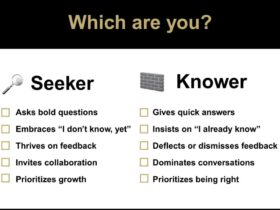In the digital age, social media has become an integral part of our daily lives, connecting us with billions of people worldwide. However, the impact of social media on your online reputation can be profound, both positively and negatively. This article will explore the ways in which your social media presence can shape your digital footprint and provide effective strategies for managing your online reputation.
Key Takeaways
- Social media platforms have over 5.04 billion active users globally, highlighting the significant impact they can have on your online reputation.
- Platforms like Facebook, Instagram, LinkedIn, and TikTok boast hundreds of millions to billions of monthly active users, providing ample opportunity to build or damage your online presence.
- Negative social media posts, comments, or behavior can often be difficult to remove, potentially affecting your personal or professional opportunities.
- Proactive management of your online reputation, including monitoring your digital footprint and responding to negative mentions, is crucial for maintaining a positive image.
- Effective online reputation management strategies, such as claiming your social media profiles and maintaining consistent activity, can help you leverage the power of social media to your advantage.
The Double-edged Sword of Social Media
Social media platforms like Facebook, Twitter, LinkedIn, and Instagram have revolutionized how we interact. They provide opportunities for networking, building relationships, and showcasing your talents and achievements. By engaging with others and sharing valuable content, you can expand your professional and personal network, demonstrate your expertise, and establish yourself as a thought leader in your industry.
However, social media also has the potential to negatively impact your online reputation. Oversharing personal information, engaging in negative interactions such as trolling or cyberbullying, and the rapid spread of misinformation can all harm your credibility and online image. It is crucial to be mindful of the content you post and how it may be perceived by others.
Positive Impacts on Your Online Reputation
- Social media networking can help you build and expand your professional connections.
- Showcasing your talents and achievements can demonstrate your expertise and establish you as a thought leader.
- Engaging with your community can help you build trust and credibility.
Negative Impacts on Your Online Reputation
- Oversharing personal information can compromise your privacy and professionalism.
- Negative interactions and comments can damage your online reputation.
- The spread of misinformation can undermine your credibility.
It’s important to find a balance between the positive and negative aspects of social media to effectively manage your online reputation and maximize the benefits of these platforms.
Tips for Managing Your Online Reputation on Social Media
In the digital age, maintaining a positive online reputation is crucial for individuals and businesses alike. Social media plays a significant role in shaping your public image, and it’s essential to proactively manage your presence on these platforms. Here are some tips to help you effectively manage your online reputation on social media:
- Be mindful of what you share: Carefully consider the content you post on social media, as it can have a lasting impact on your reputation. Avoid sharing controversial or inappropriate content that could damage your personal or professional brand.
- Engage in positive interactions: Actively participate in online conversations by providing valuable and constructive comments. This can help build a positive reputation and establish you as a thought leader in your industry.
- Fact-check information before sharing: In the age of misinformation, it’s crucial to verify the accuracy of the content you share. This will help you avoid inadvertently spreading false or misleading information, which can harm your reputation.
- Monitor your online presence: Regularly search for your name or brand on search engines and social media platforms to stay informed about what is being said about you online. This will help you identify and address any negative content or mentions in a timely manner.
- Address negative content proactively: If you encounter negative reviews, comments, or mentions, respond in a professional and constructive manner. This shows that you are committed to addressing concerns and maintaining a positive online presence.
- Build a strong personal brand: Develop a consistent and authentic online presence that reflects your values, expertise, and personality. This can help you stand out in your industry and build a positive reputation.
By following these tips, you can effectively manage your social media reputation management and protect your online reputation. Remember, a positive online reputation can open doors to new opportunities and help you build trust with your audience.

Additionally, consider separating your personal and professional social media accounts, being responsive and engaging with your audience, and leveraging social listening tools to monitor your online presence. These strategies can further enhance your online reputation protection and ensure you maintain a strong, positive image on social media.
Social Media's Influence on Online Reputation Management
In today’s digital landscape, social media has become a powerful force that can significantly impact your online reputation. Regular monitoring and proactive response strategies are essential for effectively managing your online. By staying informed about what’s being said about your brand and addressing both positive and negative mentions in a professional manner, you can protect and enhance your reputation.
Monitoring and Responding
Utilize social listening tools like Brandwatch, Mention, and Hootsuite to continuously monitor your online presence. These platforms provide valuable insights into sentiment analysis, engagement rates, and the volume of mentions, allowing you to prioritize and respond to emerging concerns. Segment your social media conversations into positive, negative, and neutral mentions to gain a comprehensive understanding of your brand’s perception and identify potential reputation risks.
Responding promptly to customer inquiries, feedback, and issues on social media is crucial. Immediate and transparent communication demonstrates your commitment to your audience and can help mitigate the impact of negative incidents. The example of Chipotle Mexican Grill’s transparent response to an E. coli outbreak showcases how effective crisis management on social media can be in preserving a brand’s reputation.
Countering Negative Mentions
When faced with negative content about your brand online, it is essential to address it proactively and professionally. This may involve contacting the platform or individual responsible for the content, providing context or addressing misunderstandings, or directly responding to negative comments in a respectful manner. The United Airlines passenger incident in 2017 is a prime example of how social media can rapidly amplify reputational issues, underscoring the importance of having effective strategies in place to counter negative mentions.
Remember, building a positive online presence through consistent branding, storytelling, and community engagement is key to maintaining a strong reputation. Collaborations with influential figures aligned with your brand values can also have a significant impact on your online reputation. Authenticity and transparency are crucial in today’s digital age, as exemplified by Apple’s handling of the iPhone battery controversy and Starbucks’ response to an incident of racial bias.
| Social Media Metrics | Importance for Online Reputation |
|---|---|
| Sentiment Analysis | Understand the overall sentiment towards your brand and identify areas for improvement. |
| Engagement Rates | Measure the level of interaction and interest your audience has with your brand content. |
| Volume of Mentions | Track the frequency and reach of conversations about your brand to spot emerging trends. |
By leveraging the power of social media and implementing effective online reputation monitoring and response strategies, you can proactively manage your brand’s online presence and maintain a positive, trustworthy image in the eyes of your customers and the public.
Online Reputation Management Strategies
Claiming and maintaining a presence on the major social media profile optimization is an essential component of effective online reputation management. By consistently updating and optimizing your social media profiles, you can ensure that positive and relevant information about you or your brand appears prominently in search results, overshadowing any negative content.
Claim Your Social Profiles
Securing your brand or personal name across various social media platforms, such as Facebook, Twitter, LinkedIn, and Instagram, is crucial for managing your online reputation. This allows you to control the narrative and present a unified, professional image to your audience. Utilize online reputation management tools to monitor your social media presence and ensure your profiles are optimized for maximum visibility.
Be Consistently Active
Consistently creating and sharing valuable, relevant content on your social media channels can help build a strong, positive online reputation. By engaging with your audience, responding to comments, and providing useful information, you can demonstrate your expertise, establish trust, and create a favorable impression of your personal or professional social media content strategy and online reputation building.
FAQ
How can social media impact my online reputation?
Social media can have both positive and negative impacts on your online reputation. It can help you build relationships, showcase your talents, and establish yourself as an expert, but it can also lead to oversharing personal information, negative interactions, and the spread of misinformation, which can harm your credibility and online image.
What are some effective strategies for managing my online reputation on social media?
To manage your online reputation on social media, it’s important to be mindful of what you share, engage in positive interactions, fact-check information before sharing, monitor your online presence, address negative content, and build a strong personal brand. Separating personal and professional accounts, being responsive and engaging, and leveraging social listening tools can also help you maintain a positive online reputation.
Why is it important to regularly monitor my online presence?
Regularly monitoring your online presence and responding to mentions of your name, brand, or relevant topics is crucial for effective online reputation management. Utilizing social listening tools can help you stay informed about what’s being said about you and address any issues proactively.
How should I respond to negative content about myself or my brand online?
When faced with negative content about yourself or your brand online, it’s important to address it promptly and professionally. This may involve contacting the platform or individual responsible for the content, providing context or addressing misunderstandings, or directly responding to negative comments in a respectful manner. Taking proactive steps to counter negative mentions can help protect and enhance your online reputation.
What are the benefits of claiming and maintaining a presence on major social media platforms?
Claiming and maintaining a presence on the major social media platforms is an essential component of effective online reputation management. By consistently updating and optimizing your social media profiles, you can ensure that positive and relevant information about you or your brand appears prominently in search results, overshadowing any negative content.














